Product Designer
Nuar
Decentralised D2C network marketplace for circular food
Role: Founder, Product
Industry: AgTech/FoodTech
Tools: Figma, Trello, Slack, Notion
Duration: 2023-2024
Role: Founder, Product
Industry: AgTech/FoodTech
Tools: Figma, Trello, Slack, Notion
Duration: 2023-2024
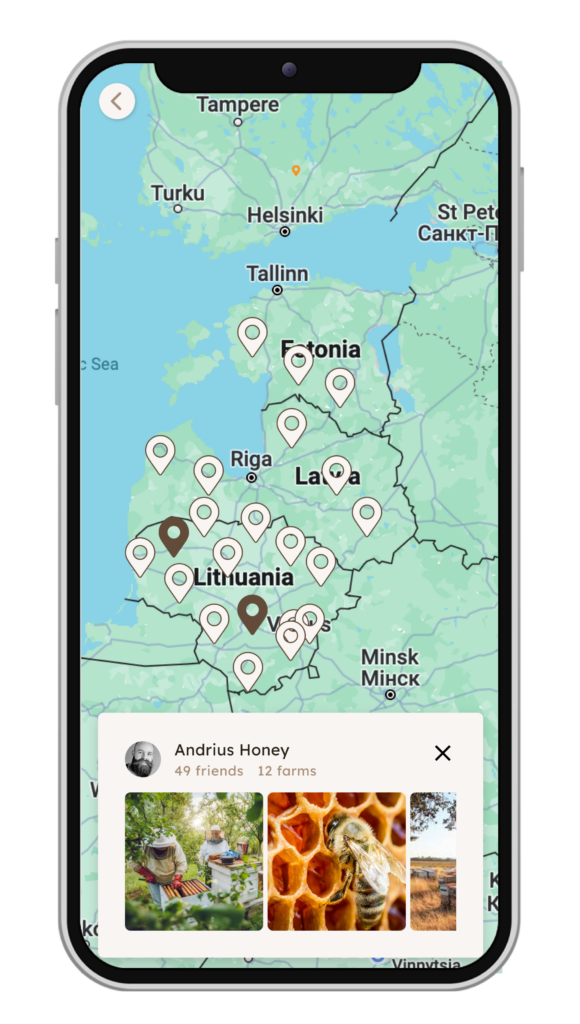
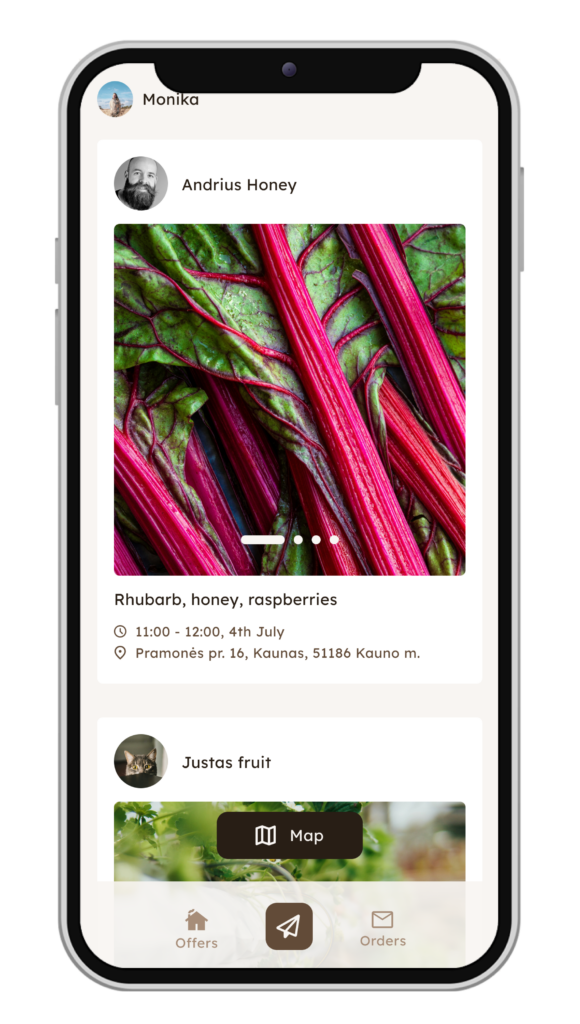
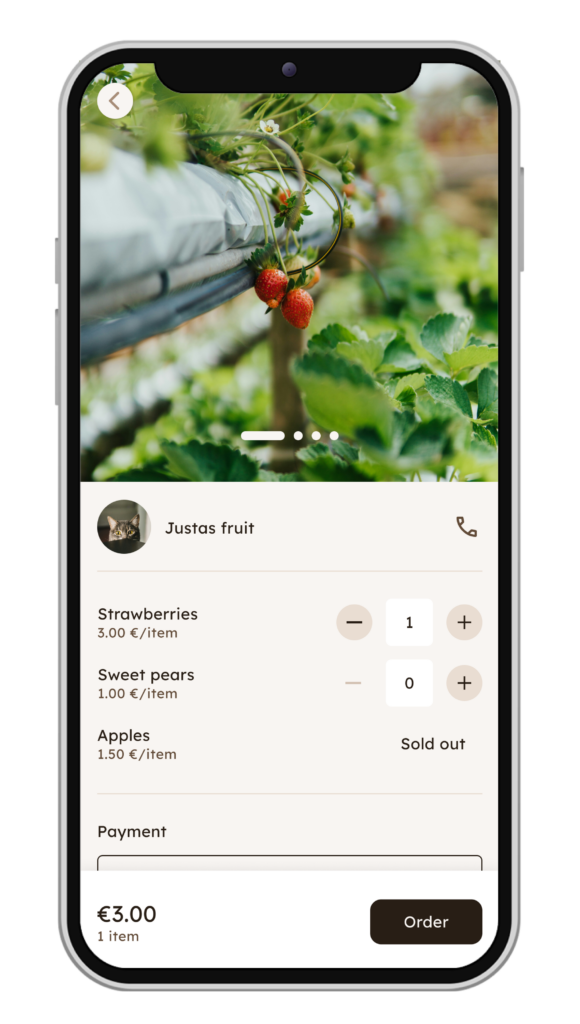
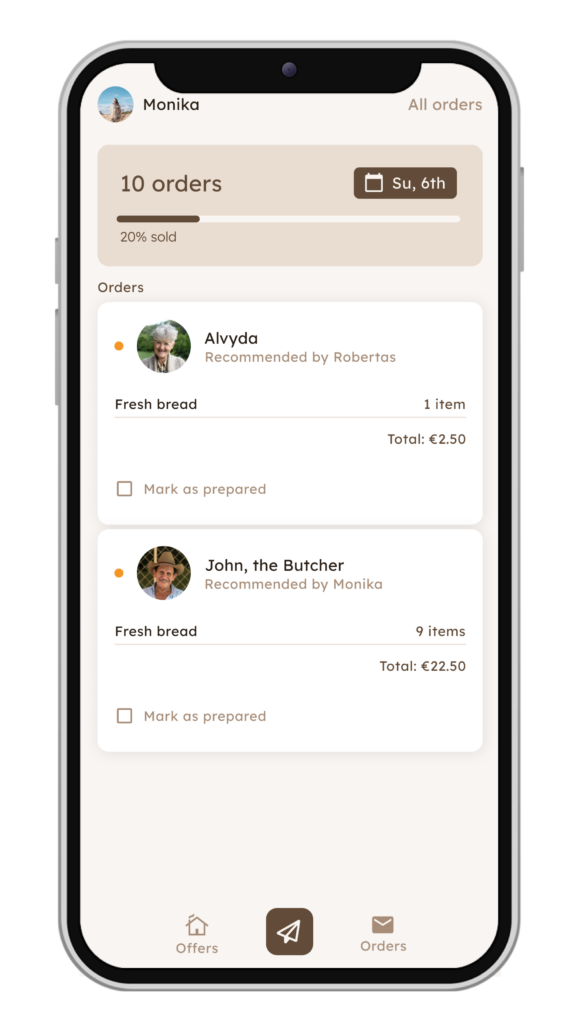
In a nutshell
Nuar is a decentralised D2C network marketplace for circular food. It is built around a quick sale of perishable, fresh and seasonal foods via people’s networks. It is fully encrypted and distributed which provides data privacy and scalability lacking in existing circular commerce solutions.
RESEARCH INSIGHTS
50+ interviews with small farmers (Minimum Viable Audience) were conducted across Lithuania, Poland, Germany and Spain. The interviews showed that despite their commitment to sustainability, small farmers still do sales over the phone, on top of 55h/week work days and yet make way below the median average salary (18k/month on average). Some of them resort to D2C channels like social media and classified ad sites to increase their income but end up spending a lot of time and effort to make these channels work for them.
At the same time, small farms are an essential component of the EU’s Farm to Fork strategy (a part of the Green Deal) aiming to reform food systems. The current food supply chain is costing consumers an additional 10 trillion euros in health, environmental, and societal costs and 53% of European consumers don’t even trust it. While the EU does provide subsidies as financial aid, most small farmers are not able to utilise them due to regulatory or bureaucratic barriers.
Solution
MVP
For small farm owners, who are dissatisfied with existing D2C sales channels, Nuar is a sales management tool, that provides the fastest path to sales, unlike Facebook, Whatsapp or Classifieds ad sites.
With Nuar App (Android + iOS), buyers subscribe to sellers they like (find on the map or get recommended). When a seller creates an offer, subscribed buyers receive it in their feed where they can order. The seller receives a processed order and prepares for delivery/pickup. Shoppers collect their orders and recommend other shoppers to subscribe to the seller they just bought from. Buyers can become sellers at any time while sellers can buy from other sellers.
Key MVP/Product principles:
– Sellers set their prices.
– Logistics must combine proximity and sustainability.
– Fundamentally, people want to eat well.
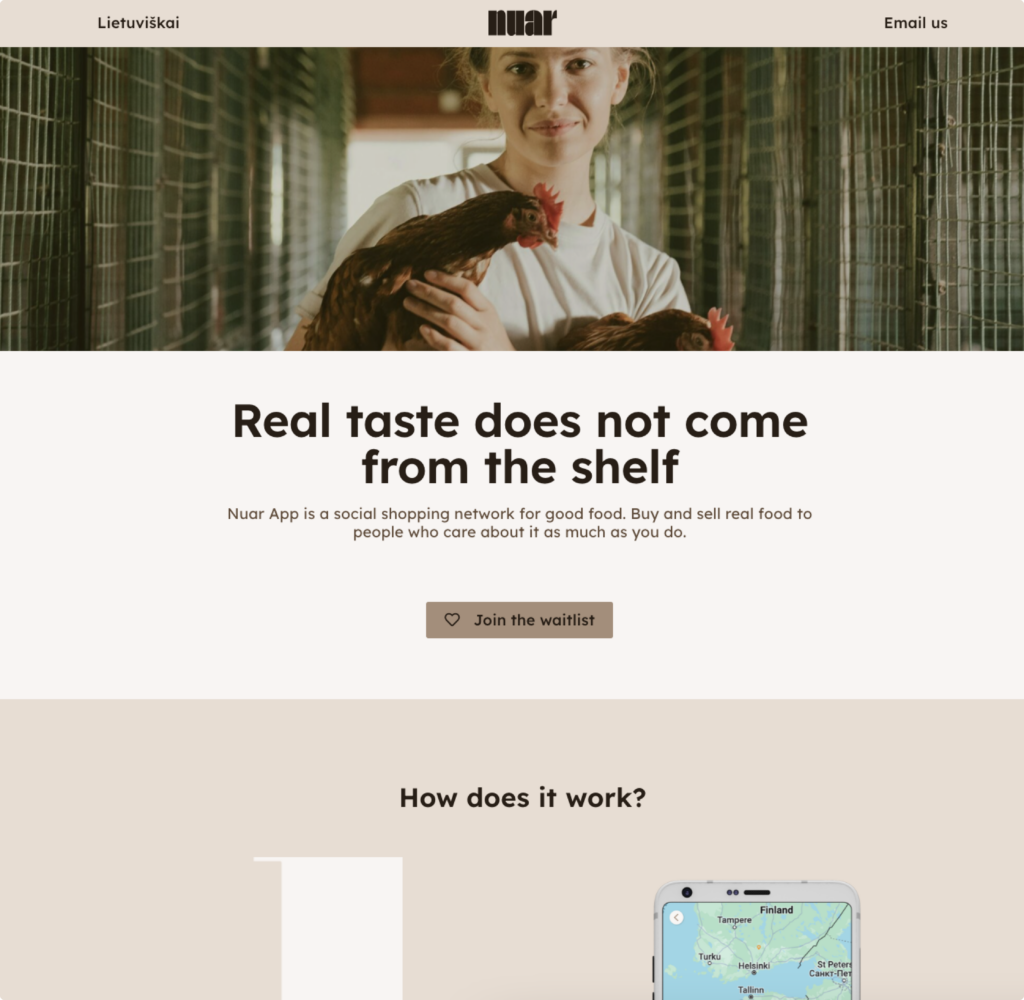
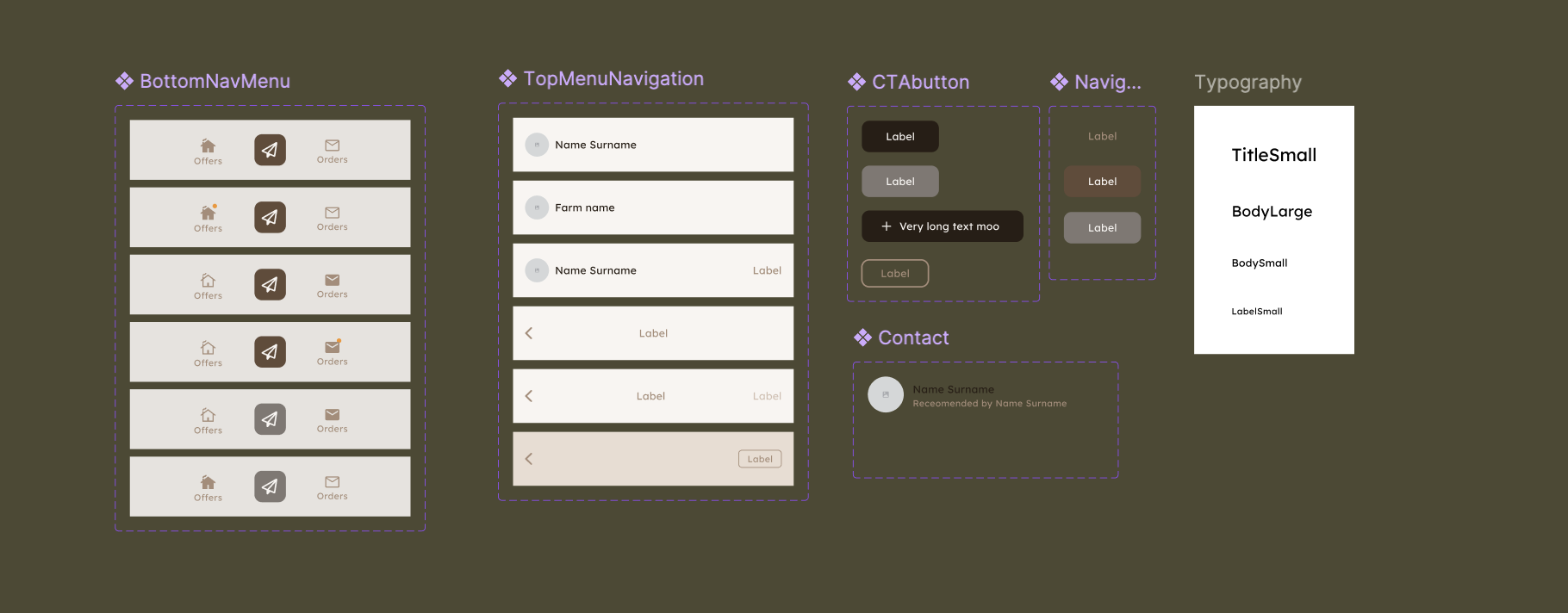
MVP Features
Offers
User interviews showed that sellers struggle to create attractive listings or they take too much time. Also, after the listing is posted, the seller needs to engage with customers via phone, comments, and direct messages and collect all orders manually. With Nuar, creating a listing is AI-assisted which means that we can process any form of text (in the future: speech and image) imputed or copy-pasted by a seller. From the text, AI creates offers that function like mini shops with integrated stock control, and payments and after being sent can be monitored in near real-time. This means that sellers can create attractive offers in less than 30 seconds and the system starts collecting orders for them the second an offer is sent.
1st and 2nd degree networks
At the moment, buyers struggle to find local sellers they can trust while sellers struggle to get a broader reach in case their existing loyal buyers are not available or not willing to purchase. To overcome this we build contact import for sellers to simplify existing customer management and engagement, public seller profile discovery channels (map and profile share) and post-purchase recommendations to expand sellers’ reach via existing buyer networks.
What’s next?
Move to Web3
For sellers, many of whom partially or fully function in the informal cash economy, data privacy is a concern. To acquire this user group, we want to move our databases to Web3 distributed and encrypted systems that will provide them with exceptional data privacy and security.
Offline capabilities
In many cases, sellers reside in rural, often poor connectivity locations, and being always online is a limitation for them. To overcome this, we intend to build offline app capabilities so that they can continue using our system without disruptions.
Crowdsourced delivery
Shoppers, especially those who live in large urban areas, want some convenience in delivery. They are much more open to compromise when they feel connected to their sellers. To offer slightly convenient delivery, we aim to crowdsource it from a group of buyers who purchase from the same seller, similar to the e-commerce unicorns Facily (Brasil) and Carousell (SE Asia). This will allow buyers to share delivery amongst themselves.
Integrations
Many sellers have already built a presence or have a significant following on social media that they utilise for reach. To reduce or eliminate switching costs for them, we will be building integrations with Facebook (Instagram), WhatsApp, and classified ads sites to utilise reach and drive transactions through our infrastructure.
Graph neural networks
Scam and fraud are a top concern for us and our users. By using AI-driven databases we can assess the reliability of each of our users and eliminate suspicious or fraudulent behaviour. In addition, similar AI-driven databases will allow us to build better seller and product recommendation systems so that buyers can find a variety of products that they need in one single feed (move from occasional to habitual purchase patterns).
Product differentiation & defensibility
Different innovation
With a focus on employing each user’s network, we are building a network marketplace that much better facilitates long-term relationships and projects than any two-sided marketplace model. Traditional marketplace models are built for quick transactions and commodification of their actors, which creates low value of network interactions. We, on the other hand, collect information on reliability, behaviours, preferences, etc on top of their personal data (transaction history, contacts, earning statistics). That allows us to build recommendations and referrals, a higher volume of transactions and higher perceived value.
Defensible technology
Distributed systems when implemented are very complex and demand a very niche skill set, making them extremely expensive, time-consuming and difficult to replicate.
Disruptive business model
Nuar is built around the quickest path to sale for perishable goods, unlike marketplaces and supermarkets. Other D2C channels can be similar in speed to sell, however, they can’t guarantee consistent sales and ensure product quality for consumers.
Key challenges
Nuar MVP was developed together with small farmers and many iterations were challenging for a small team. At the same time, small farmers are busy and often traditionalist legacy audiences so a considerable amount of time and effort was needed to get buy-in from them. A collaboration with farmers’ unions or cooperatives might have been a better way to access and engage this audience.
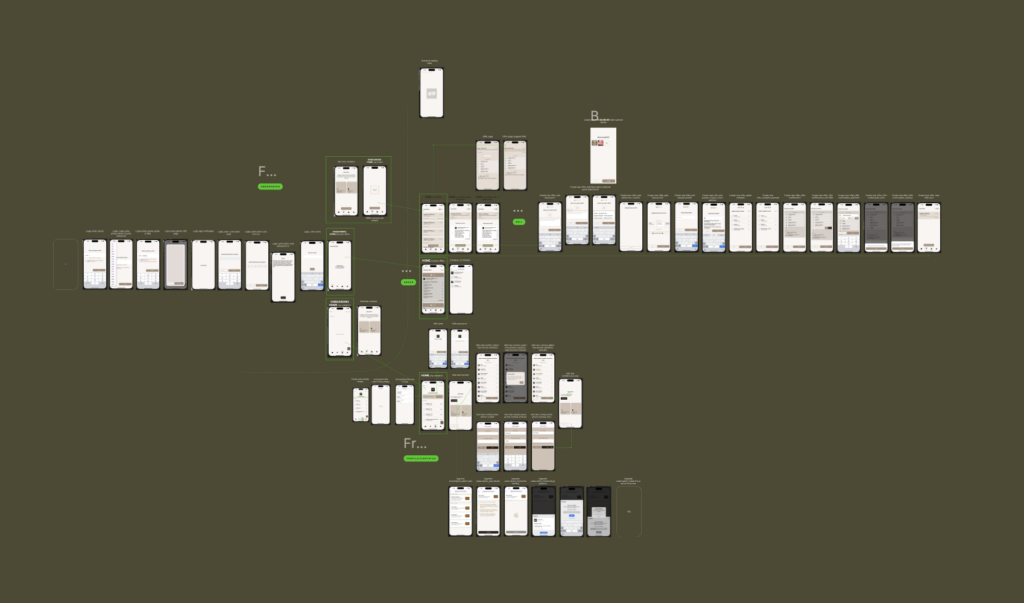
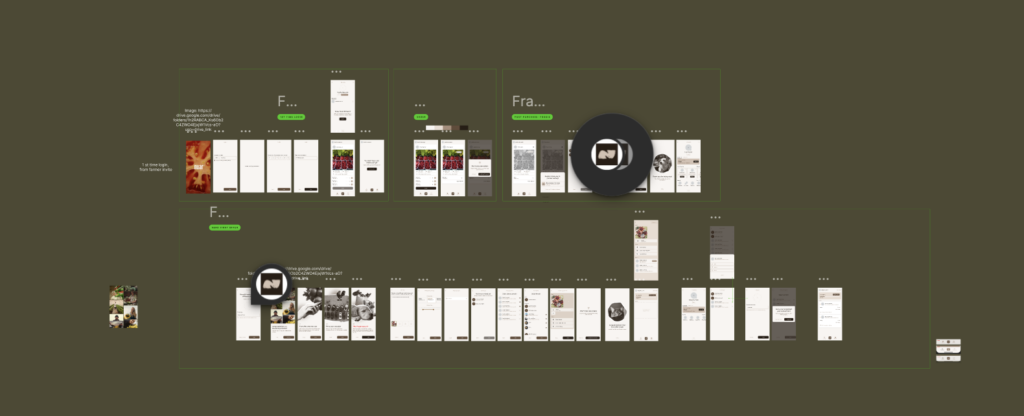
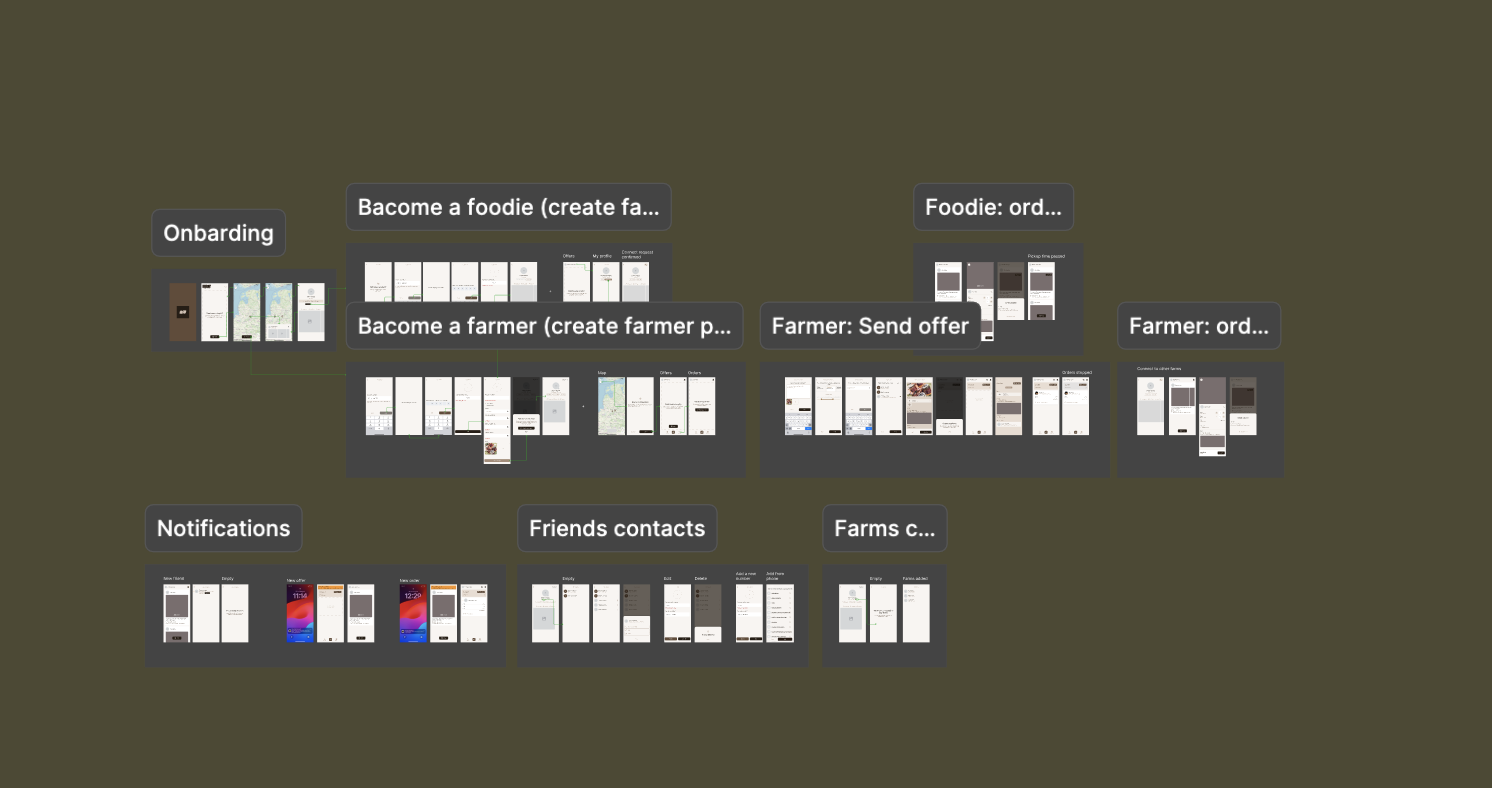
(Image: MVP iterations)